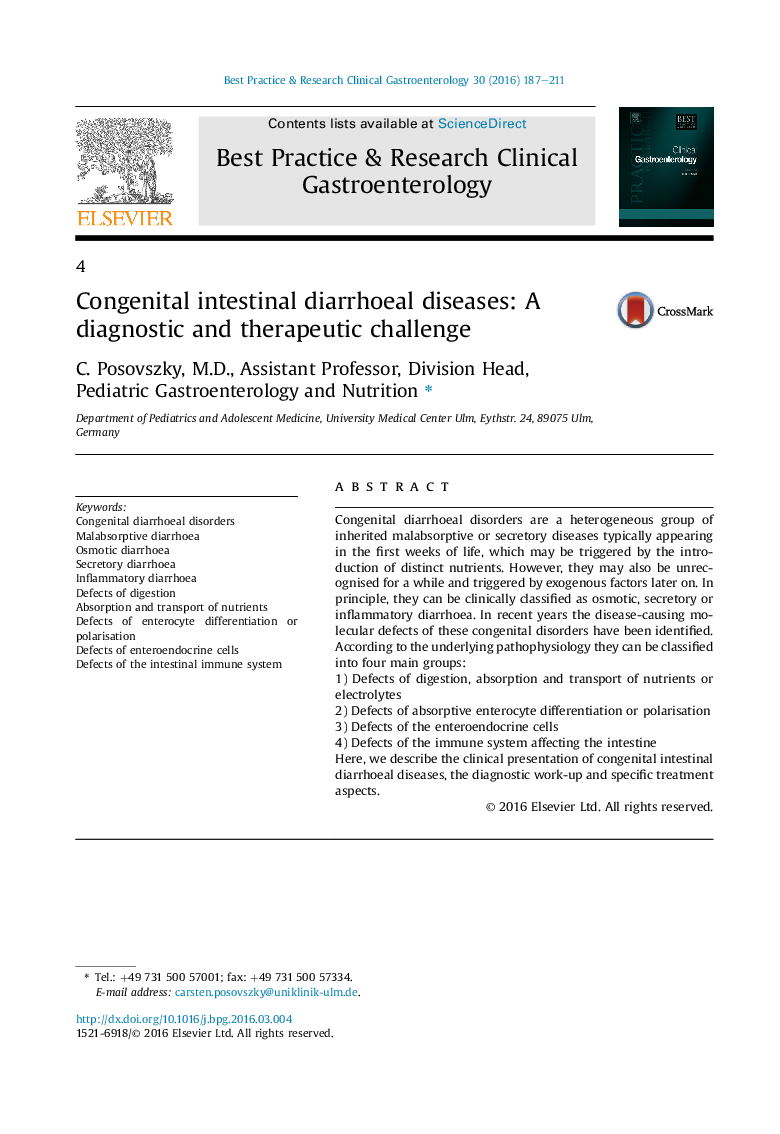| Article ID | Journal | Published Year | Pages | File Type |
|---|---|---|---|---|
| 3254123 | Best Practice & Research Clinical Gastroenterology | 2016 | 25 Pages |
Congenital diarrhoeal disorders are a heterogeneous group of inherited malabsorptive or secretory diseases typically appearing in the first weeks of life, which may be triggered by the introduction of distinct nutrients. However, they may also be unrecognised for a while and triggered by exogenous factors later on. In principle, they can be clinically classified as osmotic, secretory or inflammatory diarrhoea. In recent years the disease-causing molecular defects of these congenital disorders have been identified. According to the underlying pathophysiology they can be classified into four main groups:1) Defects of digestion, absorption and transport of nutrients or electrolytes2) Defects of absorptive enterocyte differentiation or polarisation3) Defects of the enteroendocrine cells4) Defects of the immune system affecting the intestineHere, we describe the clinical presentation of congenital intestinal diarrhoeal diseases, the diagnostic work-up and specific treatment aspects.
